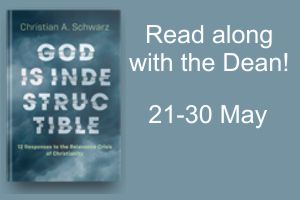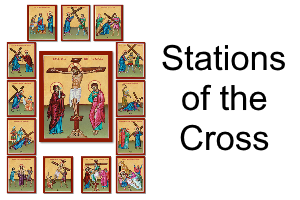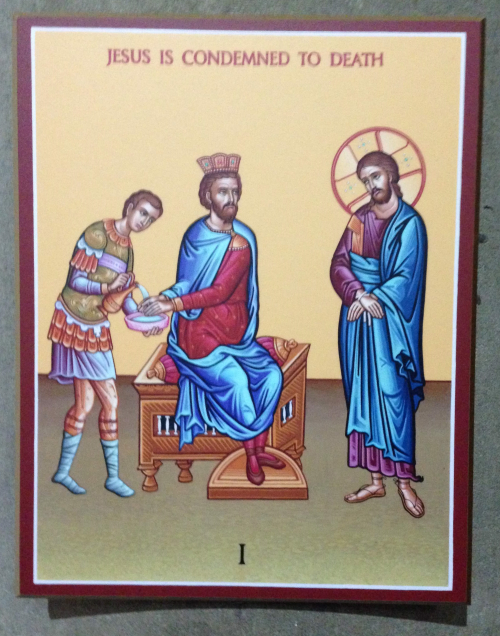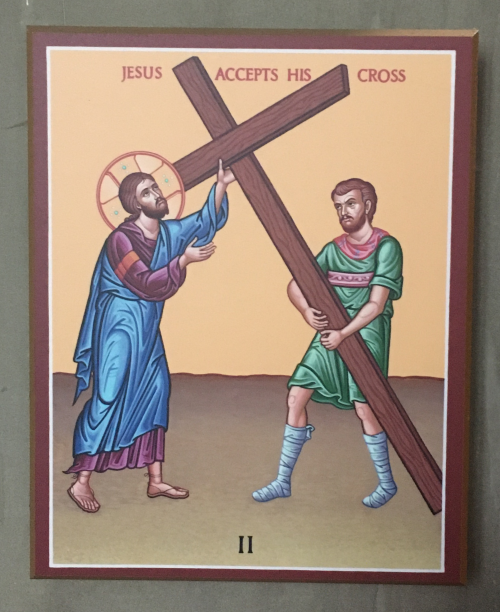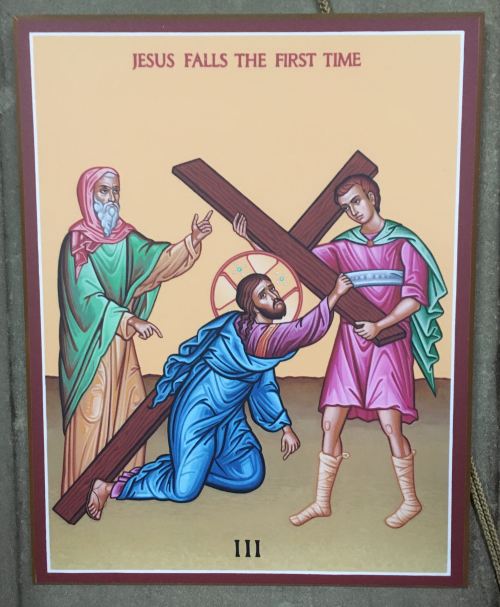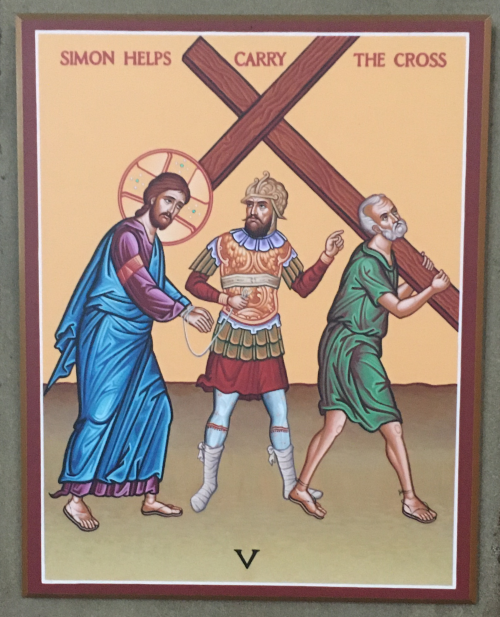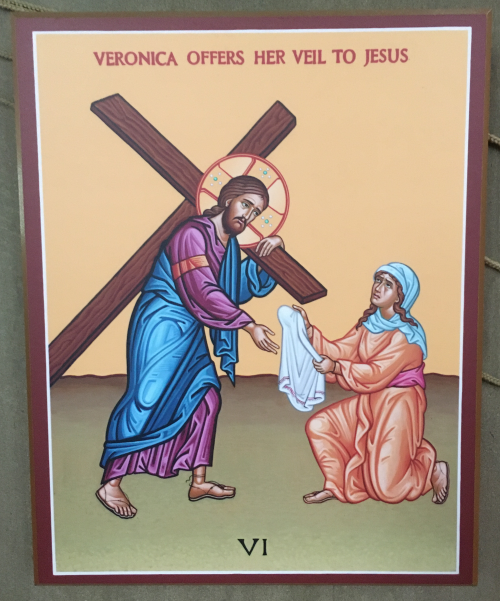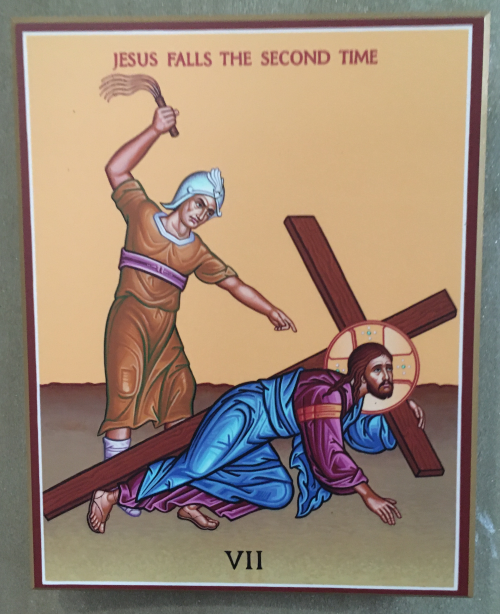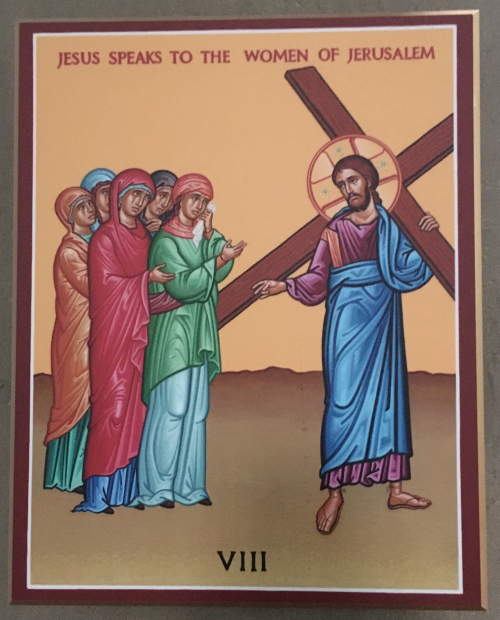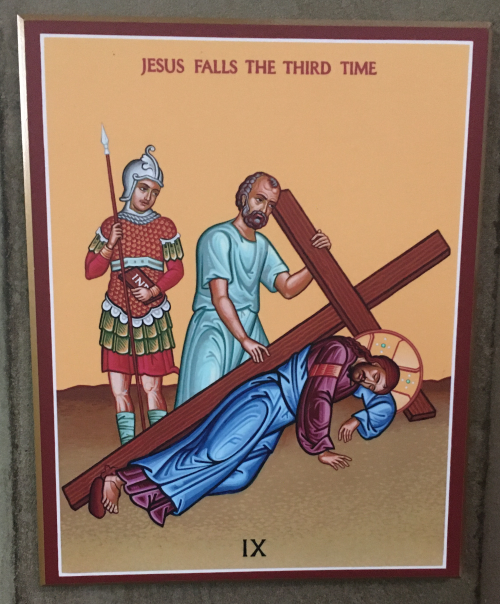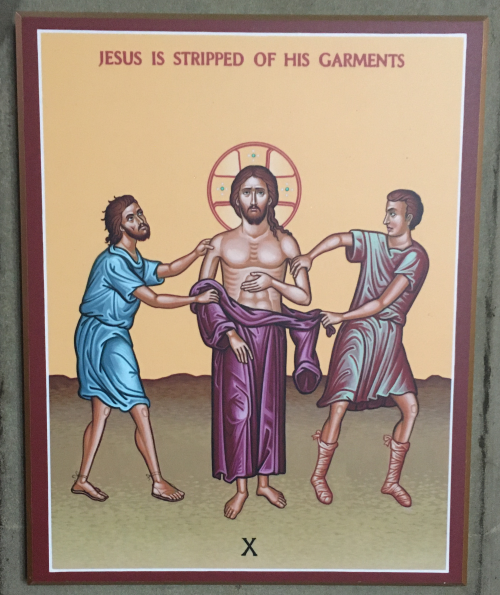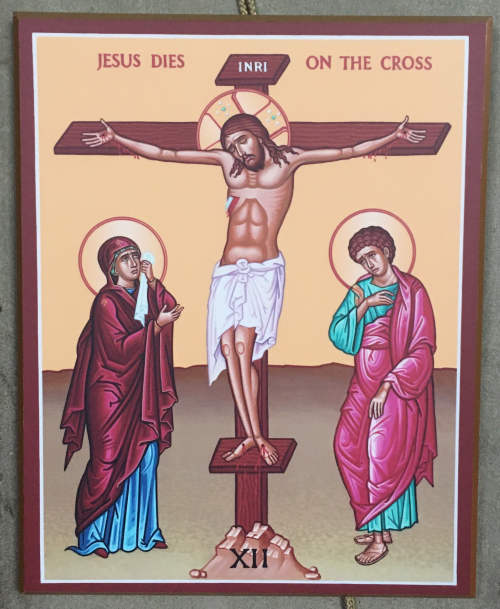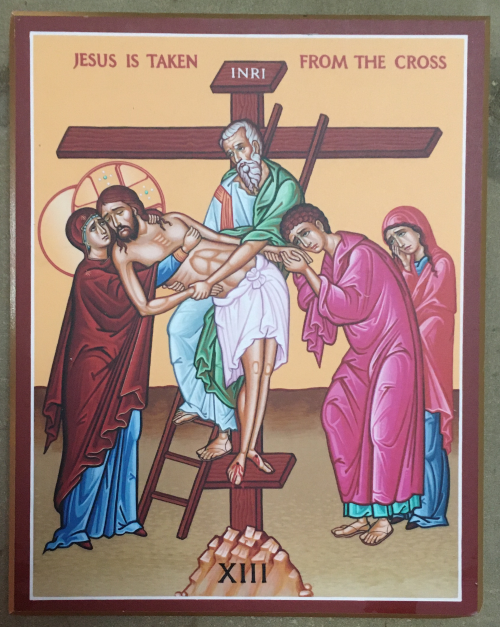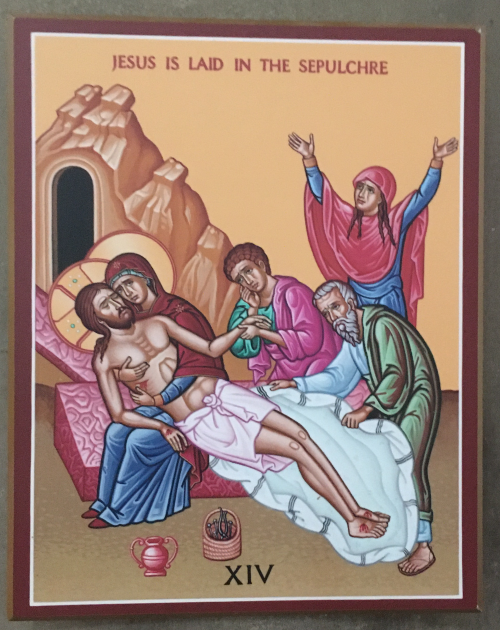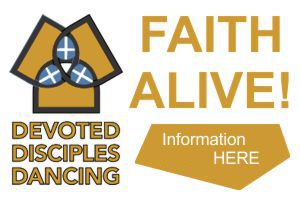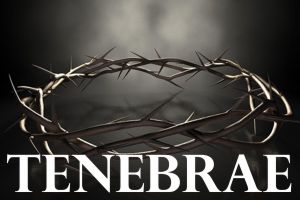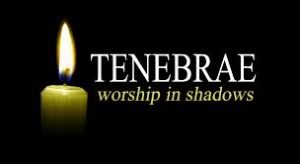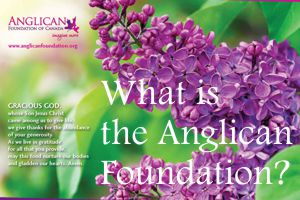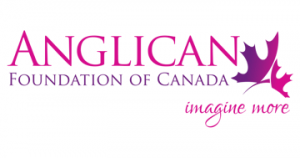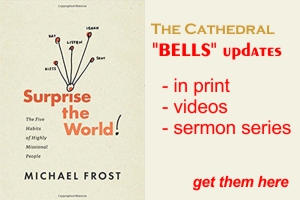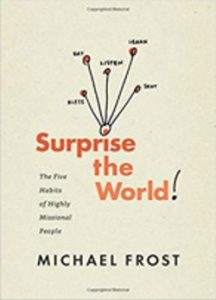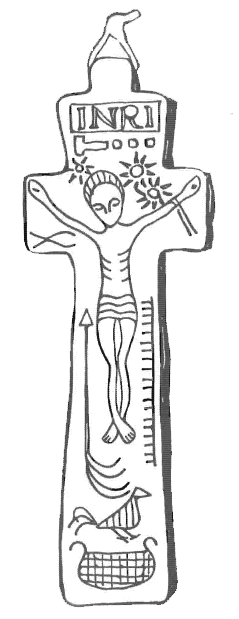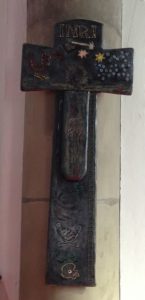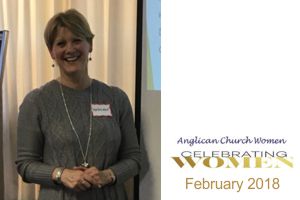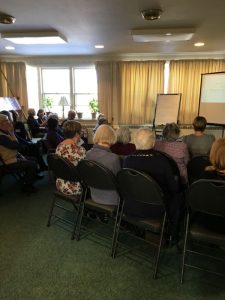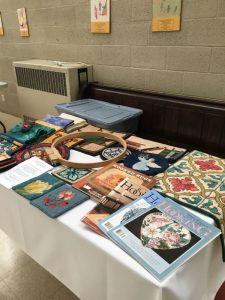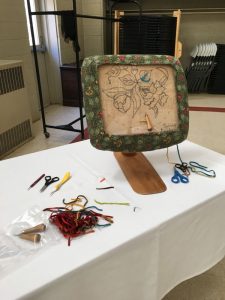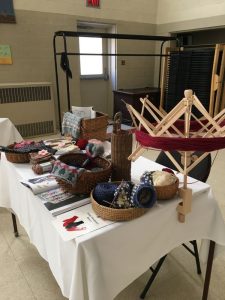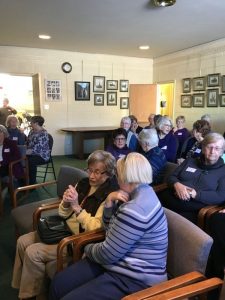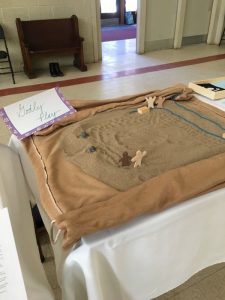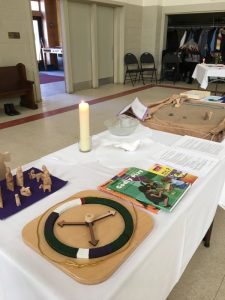God Is Indestructible
12 Responses to the Relevance Crisis of Christianity
Christian A. Schwarz
Daily studies with the Dean
Weekdays at 4:00 p.m., during Thy Kingdom Come (21-31 May 2020)
New research from churches in eighty-six countries around the world reveals that, throughout the last few years, there have been dramatic shifts in Christianity. In this book, Christian A. Schwarz not only presents these findings for the first time, but also pleads for twelve practical reforms that could unshackle the relevancy of the Christian faith, restoring it as a fascinating, transformative pursuit for people in our time.
Three main benefits:
- Understand the background of the relevance crisis of Christianity
- Learn 12 practical responses to dramatically increase the relevance of your church
- Apply new ways of interaction between Christians and non-Christians
Introduction: Dietrich Bonhoeffer’s wake-up call
In his letters from prison, Dietrich Bonhoeffer formulated a vision for the church of the future, a time when “the world has come of age.” This vision was about Christianity’s spiritual and theological compass. Bonhoeffer’s message has gained urgency in this time of unparalleled shifts in the way both religious and non-religious people process reality.
Chapter 1: Face the challenges of the global participation shift
The research presented in this chapter reveals that participation in Christianity around the world has gone through a massive shift during the last decade. Approaches that were celebrated as innovative until a few years ago, don’t seem to work any longer. While many Christians might feel threatened by these changes, this chapter shows how the global shifts open up new possibilities for living out what church is all about.
Chapter 2: Re-define leadership
In recent years, the public has been shocked by a never-ending series of leadership scandals in churches around the world, involving spiritual, emotional and physical abuse. In discussions on the topic, it is widely overlooked that the vast majority of these scandals are rooted in disempowering leadership paradigms. This chapter introduces a leadership approach that results in the systematic increase of people’s freedom, maturity, and sense of responsibility.
Chapter 3: Learn from both Eastern and Western Christianity
Alienation between the Eastern and the Western wings of the church has led to two amputated forms of Christianity that are becoming increasingly irrelevant in their respective cultural contexts. The surprising discovery is that the very elements that are lacking in the West can be found in the East, and vice versa. This chapter shows how this insight can lay the foundation for a vital and inspiring spirituality that contains the very elements that are so lacking today.
Chapter 4: Reclaim the New Testament reality of God’s energy
As unlikely as it may seem, there is a reality in the texts of the New Testament that is virtually unknown in Western Christianity -- God’s energy. This chapter shows what the results are when people discover this reality and relate it to the daily challenges of their lives. The outcome will be a fundamentally deeper connectedness with God, and new spiritual experiences to which both Christians and non-Christians can relate.
Chapter 5: Encounter the transpersonal dimension of God
Throughout history, Christianity has rightfully stressed the personhood of God, as this is a central feature of both the Old and New Testaments. However, the transpersonal aspect of God that is also found in the Bible (transpersonal = not less than a person, but more than a person) has been neglected. This chapter demonstrates how a biblical understanding of God’s energy can open the door to experiencing the God of the Bible in ways that an increasing number of people are longing for.
Chapter 6: Acknowledge different spiritual styles
One of the major reasons for dissatisfaction within existing churches is an insensitivity to people’s spiritual styles— the ways they best connect with God. Research reveals that churches typically appeal to an extremely limited spectrum of styles, thereby creating a situation in which people who have a different “spiritual antenna” are expected to express their spirituality in ways that feel unnatural to them. This chapter shows how a higher appreciation of various spiritual styles would increase the relevance of Christianity dramatically.
Chapter 7: Abandon the us/ them divide
Whenever people groups stress an “us,” they tend to position it against a “them.” People placed in the “them” category are usually very sensitive about this “us versus them” mindset, since it makes them feel that they are in the wrong place. This chapter suggests alternative forms of interaction between people of different persuasions— processes of mutual learning that provide new perspectives to the most diverse of dialogue partners.
Chapter 8: Communicate at eye level
Even if you may not agree with another person’s position, you can usually learn something from it. Such mutual learning exercises should not be targeted primarily at changing others, but at becoming stronger yourself. This chapter presents four examples of mutual learning processes, initiated by atheists, that can serve as an inspiration to Christians.
Chapter 9: Defuse fundamentalist tendencies
The past few years have seen an unprecedented increase in fundamentalism, both religious and atheistic. The research findings presented in this chapter reveal that fundamentalism is not the problem of a select few; rather, fundamentalist tendencies exist in all kinds of groups, though to varying degrees. This chapter demonstrates how Christian fundamentalism can be reduced, while at the same time increasing people’s commitment both to the Bible and to sharing the gospel.
Chapter 10: Update outdated notions about science and faith
Many people have the impression that there is an irreconcilable contradiction between science and faith. However, in most cases that notion is the result of a phenomenon called “category confusion,” comparable to the question: Is a pear green or a fruit? This chapter shows how science and Christian faith can be related to each other in such a way that both science and faith benefit.
Chapter 11: Embrace the 10/90 reality
Given the fact that even the most active church members seldom spend more than 10% of their waking hours in church-organized activities, the remaining 90% of their time needs to become the focus of attention. How can people support each other to be change agents in their sphere of influence? This chapter shows how acknowledging the 10/90 reality helps Christianity rediscover its unique purpose and, in doing so, increases its relevance to those who have not yet experienced the Christian faith.
Chapter 12: Pursue ongoing growth
One of the hallmarks of Christianity should be the pursuit of ongoing growth. However, research reveals that the very opposite is true: The longer people are Christians (and church members), the more likely they are to regress in their Christian journey. This chapter pleads for processes of continuous growth that take people from where they presently are, and help them start and sustain a never-ending journey with God.
We’ll gather by video conference for 7 sessions (considering two chapters each day) ending by 5:00 p.m. Sign up for the sessions, preferably before 21 May 2020.
You’ll need the book!
“God Is Indestructible” is available in print format from Natural Church Development (NCD) Canada
OR
Upon sign up in the classroom, (refer to recent emails from the Dean for the Class Code or contact the Dean) the e-book is available immediately at a 10% discount in Kindle, .epub or .pdf formats. Arrangements for payment can be made through the Christ Church Cathedral.
See the email to sign up.
